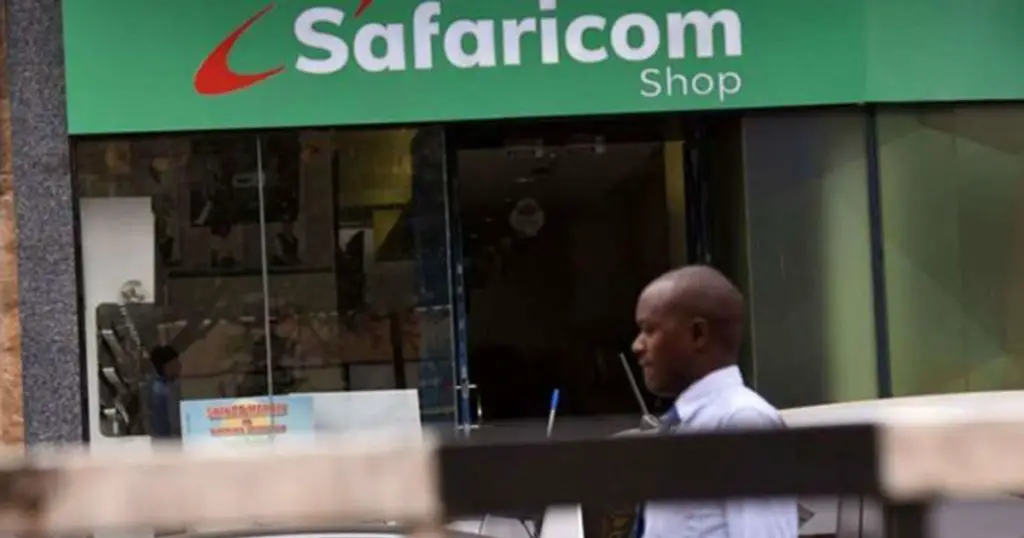- Safaricom has officially kicked off a large-scale customer pilot of its network in Ethiopia as part of ongoing plans to officially launch operations in Ethiopia
- The telco has launched the trial network in Dire Dawa, Ethiopia’s second largest city after its capital Addis Ababa
- The launch of the network is part of Safaricom’s phased city-by-city regional network roll-out and rigorous service tests building towards its national launch in October
Safaricom Ethiopia has officially kicked off a large-scale customer pilot of its network in Ethiopia as part of ongoing plans to officially launch operations in the Horn of Africa country.
The telco has launched the trial network in Dire Dawa, Ethiopia’s second largest city after its capital Addis Ababa.
The launch of the network is part of Safaricom’s phased city-by-city regional network roll-out and rigorous service tests building towards its national launch in October.
Safaricom Ethiopia said the customer pilot would be issued on 2G, 3G and 4G networks. The telcos company will also allow customers to buy their preferred numbers that begin with 07.
Commenting on the launch, Safaricom Ethiopia CEO Anwar Soussa said the milestone would help open the network to customers in order to test the end-to-end readiness of technical and commercial operations ahead of full network launch.
As part of the launch, Safaricom Ethiopia customers will also be able to purchase airtime vouchers from branded shops or souks to recharge their airtime balance and continue using services on the network.
Three shops in Kezira, Meskelegna and Cornell areas will be open to the public for customer registration, purchase of devices, and dedicated customer support.
On Safaricom Ethiopia’s test network in Dire Dawa, customers will be able to use data services, make calls and send SMS to Safaricom Ethiopia and Ethio Telecom customers, and make international calls worldwide.
Customers will also have the option of accessing customer care services from the call centre in their preferred language (Amharic, Afaan Oromo, Af-Somali, Tigrigna, and English) by dialling 700 to speak to the customer experience agents.
Since getting the license to operate in July 2021, the company has invested in its network and building infrastructure, including its own mobile radio towers, national transmission network, and wholesale agreements for international connectivity. Safaricom is the first private telecom company in Ethiopia.

Safaricom to introduce M-Pesa services to Ethiopia
In a related story, Safaricom is expected to transform Ethiopia by positively impacting most sectors of the 112 million population economy.
Kenya’s outgoing President Uhuru Kenyatta said in September 2021 that Safaricom’s entry into Ethiopia would help the economy make even greater strides in its areas of strength.
These include digital presence, mobile money, telephony, data and fibre connectivity, and business solutions.
Kenyatta spoke in Addis Ababa during the issuance of an operating license to the Safaricom-led Global Partnership for Ethiopia consortium, which won a KSh 91.8 billion bid to operate in the country.
The licences are expected to bring an infusion of cash, jobs and infrastructure investment.
The consortium won a 15-year license in a competitive bidding process, making it the first private telecoms player in the country.
It brings together Kenya’s Safaricom, South Africa’s Vodacom, UK’s Vodafone, British finance agency CDC Group, and Japan’s Sumitomo Corporation.
“Kenya has seen the great gains and opportunities unleashed by Safaricom across the entirety of our socio-economic landscape. Ethiopia now stands at the cusp of making even greater strides in Safaricom’s areas of strength,” Kenyatta said.
The Global Partnership for Ethiopia consortium is expected to expend over KSh 864 billion in ten years, making it the largest FDI in Ethiopia’s history.
It is also expected to help Ethiopia create over 1.5 million new job opportunities for its citizens.
The Kenyan President also urged the Ethiopian Government to consider opening up opportunities for mobile money services as part of the telecommunications liberalisation process.
He said that In Kenya, the success of M-PESA, Africa’s, if not global, first mobile money platform, is a classic example of what possibilities lie in mobile financial services if fully exploited.











